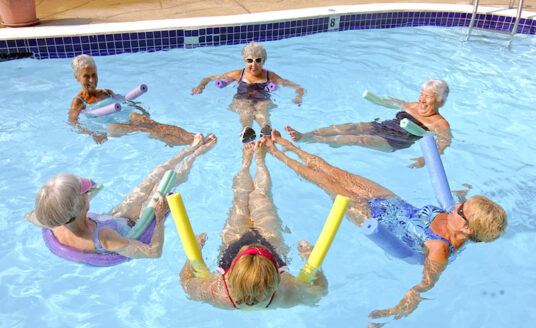You cannot think of one parent without thinking of the other. They have been together for years, linked by their deep interdependence and connection.
Now, one of your parents has taken a turn for the worse. Perhaps one started developing dementia, or a chronic illness has worsened. Recovery from a recent hospitalization may have not gone well. Or one fell and is dependent on the other to take on many of the tasks that she or he used to perform. Now, they need different levels of care. They are aging together, but not in the same way.
Staying together provides both of them with comfort, predictability, encouragement, and companionship—all vital to their health and happiness.
You as a family caregiver know your parents want to stay together. But how is that possible when one of them presents challenges his or her spouse cannot manage?
Reaching an Agreement
It is important that, as a family caregiver, you begin discussing future care needs before they begin to happen. The discussion may not be easy, and will probably involve more than one conversation. Be prepared for a variety of reactions.
Even after physical and cognitive challenges become more apparent, one parent may be more reluctant to discuss increasing care needs, or be prone to cover for the spouse that has the needs. For example, one spouse may be ready to consider help, while the other does not want to talk about it.
With their permission, ask their physician to assess the physical and cognitive state of the parent who is the most challenged, and how those challenges may progress.
Finding the Best Care
Regardless of the different levels of care your senior parents may need, it is important to consider both the current and future needs of both parents and identify affordable options that will work for them. A senior care coordinator specializes in making those kinds of assessments and is aware of the resources that will provide the optimal support for your senior loved ones.
Depending upon the situation, many options are available, including in-home care, when you as the caregiver can no longer devote the time and energy required to properly care for your parents. However, as the needs of your senior loved ones progress, in-home care may become too expensive to maintain.
Assisted living is also a possibility that works well for seniors who are still capable of performing some tasks and activities without support or supervision but need some help to perform others. Bethesda’s Care Management program services include help with bathing, meal planning, laundry, dressing, running errands, shopping, and escorting the senior to physician appointments.
If one parent is in the beginning stages of dementia or is in need of therapy, some assisted living communities, like Bethesda Hawthorne Place, provide memory support services as well as therapy services.
As the needs of each assisted living resident may vary, care and support are tailored to each individual resident. This allows the couple to remain together in the same apartment.
Bethesda also has the ability to provide skilled nursing care for more intensive treatment and rehabilitation services, as well as memory support neighborhoods in a secure environment where residents’ memory challenges are beyond the occasional to moderate age-related forgetfulness.
Tips for Talking to Your Parents
In talking to your parents, don’t gloss over their concerns. Discuss their current and future needs, while emphasizing how much better their lives will be when they are receiving the assistance they need.
Make the decision about the next steps, a joint one if at all possible. Be patient but persistent. Engage in a discussion between you, your parents, and a senior care coordinator. This person would represent an unbiased and knowledgeable source of information for everyone concerned, and they will help map out a care plan.
If you’re unsure how to manage your aging parents’ different levels of care needs, Bethesda can help. With our unique Care Management program, we will work with you and your parents to take action now and create a plan for the future. Contact us to learn more.
| With 133 years of experience, Bethesda has become a leader in senior care, offering independent living, assisted living, memory care, and skilled nursing. To see if memory care is right for your family, tour any of our communities, including Bethesda Dilworth, Bethesda Southgate, and Bethesda Hawthorne Place. After meeting with our residents and highly trained staff, you will instantly feel at home. |



